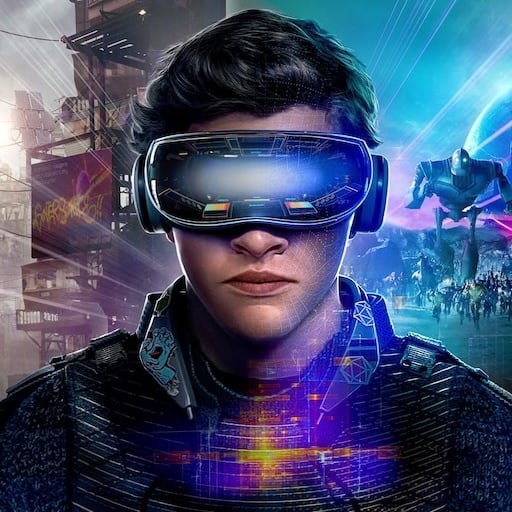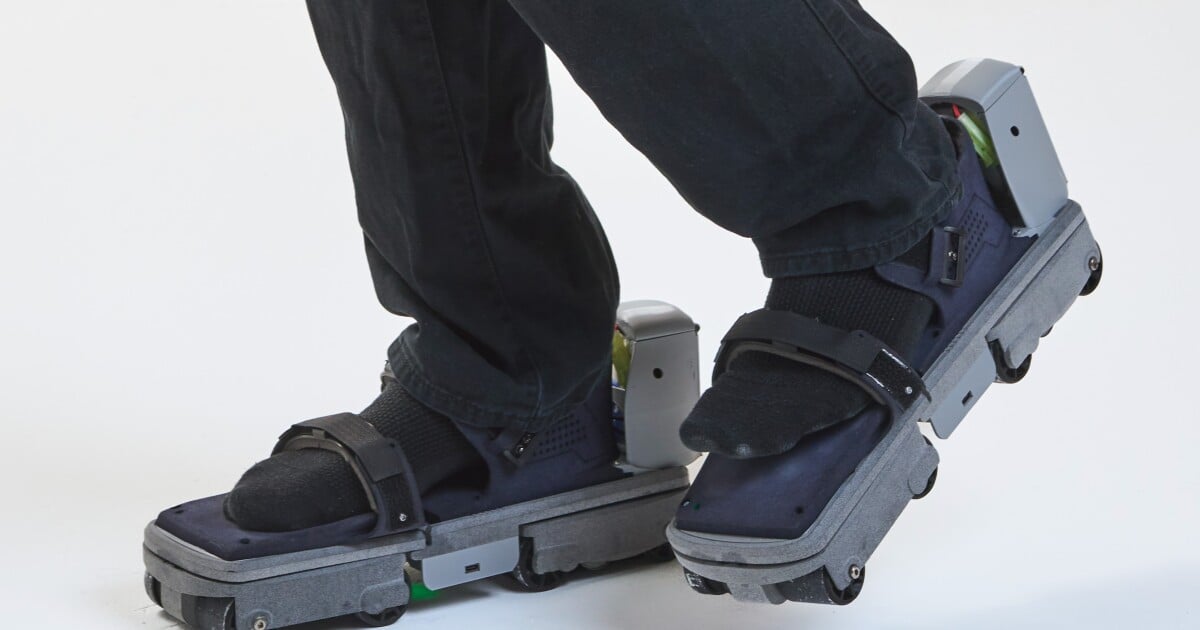While it’s easy enough to replicate users’ real-world head and arm movements in VR environments, walking is a bit trickier. After all, if a gamer is walking the length of a virtual city block within a game, they can’t very well be covering that same distance in real life … or at least, not without running into things.
One solution to this problem involves using what are known as omnidirectional treadmills. These tend to take the form of slippery round(ish) platforms that slope in toward the center like a bowl. As the user walks on that platform – facing in any direction – their feet continuously slip in to the middle, keeping them in place.
According to Freeaim, however, some people describe walking on such platforms as feeling more like skating, or like pushing awkwardly against the inside of a dish. Additionally, omnidirectional treadmills are relatively large and expensive, plus they require the user to be supported by a harness or wrap-around railing.
By contrast, Freeaim VR Shoes are more like electric roller skates.



some vr games I have tried have controller stick walk and physical walking separate so if you do both you can move really fast at the expense of needing a huge space and the risk of getting really disoriented and injured. It’s been a while so I’m not sure which ones prevented it but some did which was even more disorienting.
anyway I put in more effort than real life…